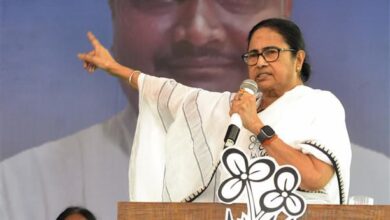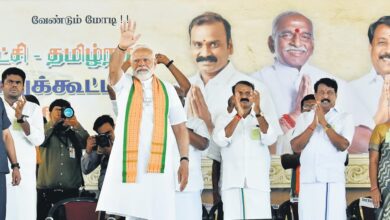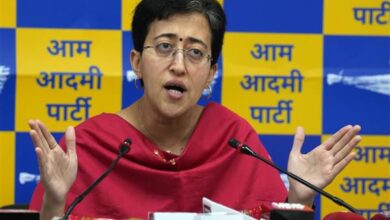SC rejects SBI’s plea for electoral bonds and requests that all information be disclosed by tomorrow
The State Bank of India’s request for an extension until June 30 to reveal the specifics of each electoral bond that political parties redeemed prior to the scheme’s cancellation last month was rejected by the Supreme Court on Monday.

The SBI was instructed by a five-member Constitution bench led by Chief Justice of India DY Chandrachud to provide the necessary information by the end of business on Tuesday, March 12. The Election Commission of India (ECI) was also instructed by the court to post on its website the specifics of the data that was provided to it in accordance with the interim injunction.
The court issued a firm warning to the SBI, stating that contempt might be imposed if the deadline was missed.
Advocate Harish Salve, speaking on behalf of SBI, informed the court that a standard operating procedure (SOP) was in place to ensure that the bond number and the buyer’s identity were removed from our main banking system.
Salve said, “We were told that this was supposed to be a secret.”
“As you can see from the instruction we gave, you are not required to complete the matching activity. “We have issued a straightforward disclosure,” the court said.
Salve said, “We had divided the information when the purchases were happening.”
CJI DY Chandrachud said, “But in the end, all details were sent to the Mumbai main branch.”
“Every purchase required Know Your Customer (KYC) details, as demonstrated by the frequently asked questions (FAQs) you presented to us during the hearing,” the CJI said.
“We were aware that the information was private. A methodical process was developed. The bond number was the only one that was cleared, and it was used for further transactions. It was also done in an effort to stop rumors. It is not an issue, Salve remarked. I have all the information on who gave via EB, all in one silo. I also know which political party emerged.
The judge inquired, “How much matching has been done in the last 26 days?” Advocate Harish Salve, representing SBI, stated, “We can give the information on an affidavit,” in response to the court’s question.
“You’re the top bank in the country,” the judge said. We depend on you to manage it.
The court said that “Know Your Customer (KYC) documents must be submitted by the purchaser each time the bond is purchased, irrespective of whether the purchaser has a KYC verified SBI account,” according to the SBI’s list of frequently asked questions about electoral bonds.
This means that a single piece of paperwork—the pay-in slip, KYC papers, and electoral bond application form—can only be used to buy a single bond. The contributors who own an SBI account and those who are exempt from submitting the KYC documents, EB application, and evidence of payment by NEFT, check, or direct deposit. As a result, the information on the bonds that have been acquired is easily accessible,” the court said as it dictated the ruling.
The key argument put forth by the SBI, according to the court, was that it took a lot of time to match donor and recipient party information.
A five-judge constitution bench struck down the Center’s electoral bonds program, which permitted anonymous political funding, in a historic decision rendered on February 15. The court declared the program “unconstitutional” and mandated that the Election Commission reveal the names, amounts, and recipients of each donor by March 13.
The Election Commission was then asked to publish the details on its official website by March 13 after the top court ordered the SBI, the authorized financial institution under the scheme, to submit the details of the electoral bonds it has purchased since April 12, 2019, by March 6. The SBI petitioned the Supreme Court on March 4 to extend until June 30 the deadline for disclosing the specifics of the electoral bonds that political parties had redeemed.
The SBI said that the process of correlating the data from one silo to the other and retrieving information from “each silo” would take a lot of time. The application said that “decoding” the electoral bonds and linking the contributors to the contributions would be a difficult procedure because of the strict precautions put in place to guarantee that the donors’ identities remained unknown.







